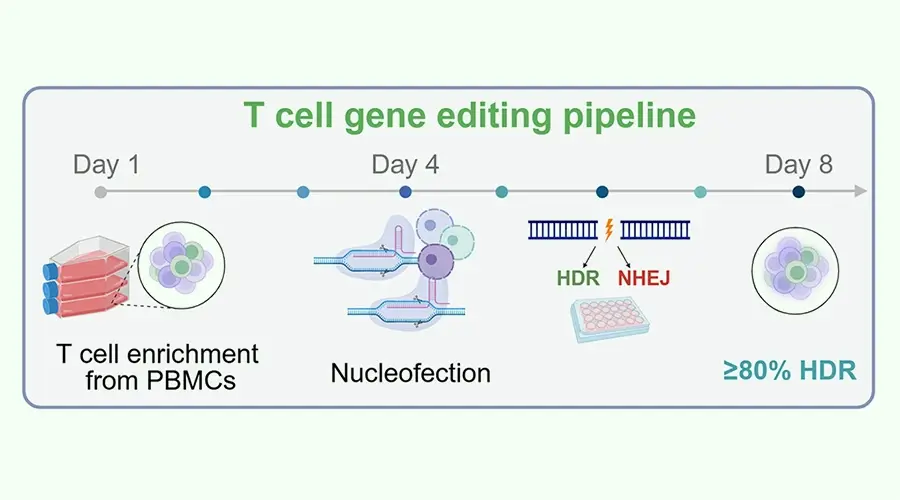We’re happy to share that our new paper, Precision T cell correction platform for Inborn Errors of Immunity, has been accepted for publication in Molecular Therapy and is available online ahead of print.
Abstract
CRISPR/Cas9 gene editing is a promising tool to correct pathogenic variants for autologous cell therapies targeting Inborn errors of immunity (IEI). Current strategies, such as gene knockout or cDNA knock-in, address many single-gene defects but can disrupt gene expression, highlighting the need for precise correction platforms. While transplanting corrected autologous hematopoietic stem cells is a curative approach, it is unsuitable for patients with advanced disease, inflammation or acute infections.
As correcting T cells is an alternative therapeutic strategy for lymphoid IEIs, we present an efficient T cell single nucleotide variant (SNV) correction platform based on homology-directed repair (HDR). By using STAT1 gain-of-function (STAT1-GOF), Cartilage Hair Hypoplasia (CHH), Deficiency of ADA2 (DADA2), and Autoimmune polyendocrinopathy-candidiasis-ectodermal dystrophy (APECED) as IEI models, we demonstrate that our platform achieves up to 80% correction, with resultant functional correction of the disease phenotype in the selected models. Furthermore, we performed safety profiling using GUIDE-seq, single-cell RNA sequencing, long-read genome sequencing, and proteomics analysis and detected no genomic, transcriptomic, or proteomic aberrations.
This study establishes HDR-based SNV editing as a portable method for developing clinical autologous T cell therapies and represents a promising step toward a broad-spectrum gene correction platform for treating diverse monogenic immune disorders.

